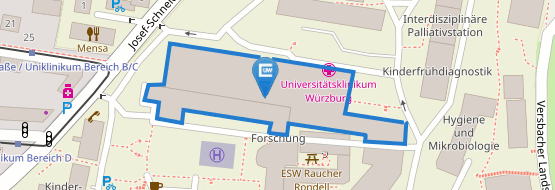Proteins in Cellular Signaling
Signaling between and within cells is the key to coordinated functions in all living organisms. The proteins involved in such signaling processes are essential for life. Their dysregulation often causes diseases, and therapeutic drugs often target these signaling proteins. Receptors, which are usually localized at the cell surface, are the most important class of signaling proteins. They receive signals from other cells (hormones and transmitters) and then activate signaling processes in the cell interior that ultimately trigger cellular reactions.
Various signaling pathways are investigated at the Rudolf Virchow Center; for example those that are triggered by G-protein-coupled receptors and receptor tyrosine kinases. These systems are investigated at various levels of complexity, ranging from understanding the molecular receptor/ligand binding interfaces and the receptor activation process, to studying complex physiological responses. Key molecular questions addressed in these model systems concern mechanisms of recognition in signaling systems and how intracellular signals are mediated in space and in time. These molecular mechanisms are linked to (patho)physiology, with a special focus on molecular mechanisms that lead to cardiovascular diseases.
Groups in this Research Field:
- Katrin Heinze
- Bernhard Nieswandt
- Andreas Schlosser
- Grzegorz Sumara


